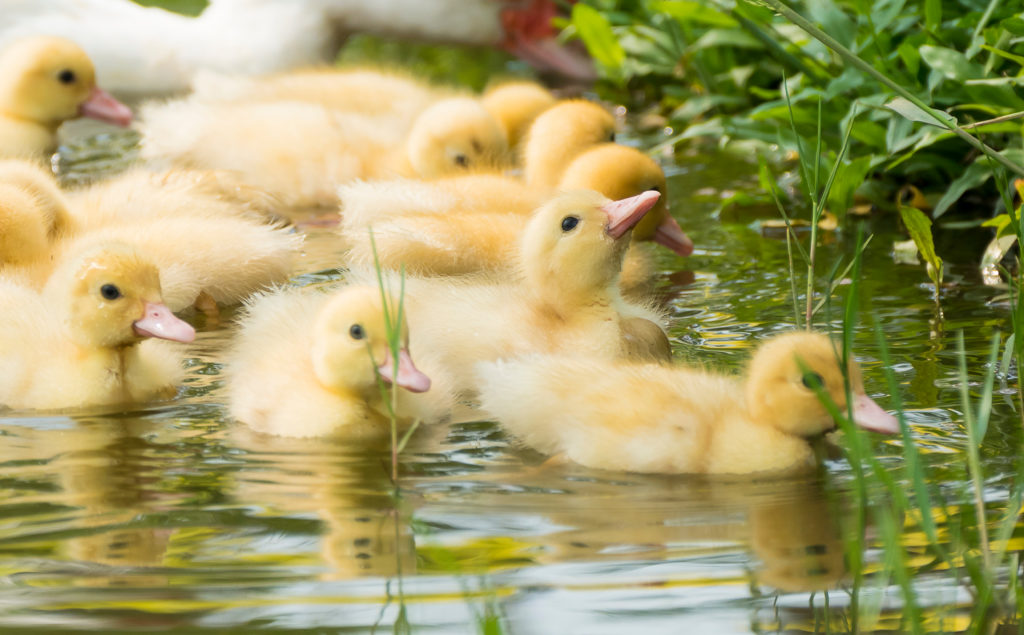Academic Buoyancy – Jennifer Oaten

Ducklings’ feathers help them float not just by repelling water but by trapping air. This trapping of air between the feathers and the skin adds to the duck’s natural buoyancy. Ducks also produce oil which coats their feathers, making them water-resistant. Without it, the feathers would absorb water, making them significantly heavier and less buoyant. It would be like you swimming with your clothes on.
So what is academic buoyancy?
Academic buoyancy, just like the buoyancy of a duckling, is a balancing act and a key component of a student’s capacity to thrive at school. It is defined as a students’ ability to overcome setbacks and challenges typical of school life. The construct of academic buoyancy was first presented by Australian academics Andrew Martin and Herbert Marsh in 2008. It refers to the ability of students to successfully deal with academic challenges such as failing a subject, missing an assignment deadline, completing assessments or exams, catching up after an absence from school, or an unexpected change of teacher.
Why is it important?
Academic buoyancy is key in determining a student’s capacity to thrive. Academically buoyant students can successfully handle everyday academic challenges, difficulties and setbacks. They also demonstrate higher motivation, engagement, wellbeing, achievement, and they value and enjoy school more.
Students who are unable to overcome the everyday stresses of school life may experience underachievement and disengagement, which limits their ability to reach their full potential. Therefore, it is critical to ensure that all students have the capacity to navigate the day-to-day challenges of academic life.
We must understand how to boost academic buoyancy among girls; otherwise, we risk leaving their potential unfulfilled.
How can we develop academic buoyancy?
Researchers from the University of Sydney and the University of Oxford have investigated how to help students develop their academic buoyancy. They refer to Martin and Marsh’s model as the 5Cs. If we can help students develop these areas, it will help them manage the everyday challenges at school. This model is proactive rather than reactive and focusses on developing:
- Composure – students managing everyday anxieties by removing the fear of failure. Your best is all that is needed.
- Confidence – students believing in themselves and developing a ‘yet’ attitude, I am unable to do this yet.
- Co-ordination – students manage workloads and avoid procrastination. It encourages starting early, not leaving the hard task till last and managing your study environment to minimise distractions.
- Commitment – students show persistence with academic studies and a growth mindset underpinned by positive thoughts. ‘Grit’, which is the combination of passion and persistence, is needed.
- Control – students own and are in charge of their learning. Regular constructive feedback leads to improvement and development instead of comparisons to others
Many of our students will need academic buoyancy in the coming weeks as our Years 10 – 12 students begin their Semester 1 examinations. Boosting academic buoyancy may help our young women overcome some of the barriers females face after leaving school, including gender gaps and biases in some fields.
Developing academic buoyancy at school will assist our young women to display strength and buoyancy in life beyond school and live out my belief that anything is possible!

With Laurissa Knowles From Valley Depths to Mountain Peaks (1993)
Laurissa Knowles (1993) has had an incredible career journey so far, from Santa Maria College Teacher to Celebrant and Councillor.

Elevating Spaces: Diana Ellis’ Signature Touch & Architecture Magic
What happens when you mix a love for art, travel, nature, and creativity with construction and building? You get the essence of Diana Ellis’ career!

The Power of Expectations in Shaping Student Success – Jennifer Oaten
Discover the transformative impact of expectations on student success. Learn how belief shapes outcomes in education and beyond.
- Featured
Author: Santa Maria College
Santa Maria College is a vibrant girls school with a growing local presence and reputation. Our Mission is to educate young Mercy women who act with courage and compassion to enrich our world. Santa Maria College is located in Attadale in Western Australia, 16 km from the Perth CBD. We offer a Catholic education for girls in Years 5 – 12 and have 1300 students, including 152 boarders.






